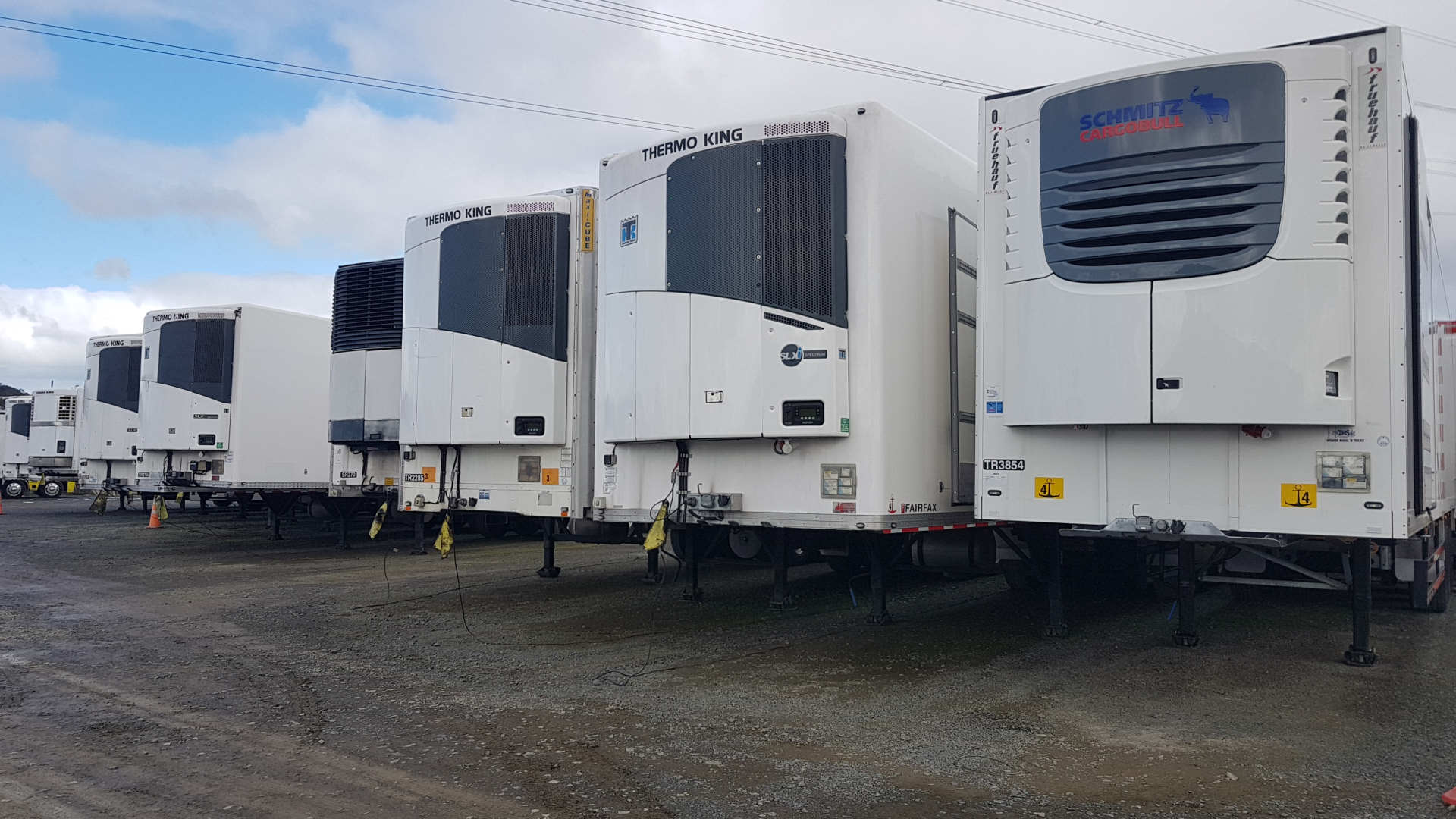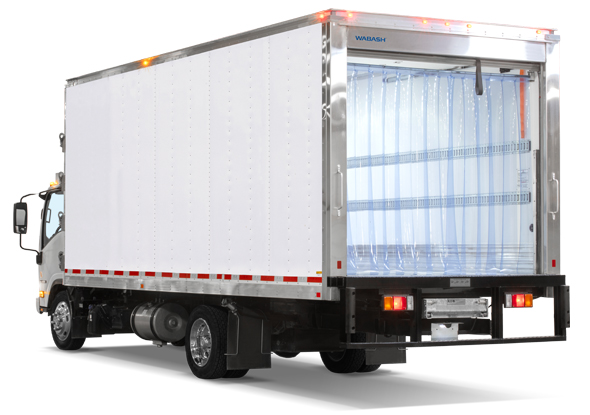Thermo King Truck Refrigeration: Reliable Cooling for Your Fleet
Thermo King Truck Refrigeration: Reliable Cooling for Your Fleet
Blog Article
Leading Technologies in Transportation Refrigeration: Enhancing Efficiency and Security
The landscape of transportation refrigeration is going through substantial makeover, driven by technologies intended at boosting both performance and safety and security. As these innovations continue to develop, it is crucial to discover their ramifications on operational techniques and regulative conformity, motivating a more detailed exam of just how they reshape the future of transport refrigeration.
Smart Temperature Keeping Track Of Systems
In the world of transport refrigeration, smart temperature surveillance systems have emerged as a crucial innovation for making sure the stability of temperature-sensitive items. These advanced systems leverage Net of Points (IoT) innovation to give real-time data on temperature level fluctuations, enabling drivers to keep ideal conditions throughout the supply chain. By continuously tracking the temperature level of chilled containers and cars, companies can promptly recognize deviations that may endanger item quality.

Additionally, clever monitoring systems typically integrate automated signals and notices, permitting stakeholders to react quickly to any type of possible concerns. This aggressive approach not only decreases the danger of spoilage yet also improves compliance with regulatory requirements governing food safety and pharmaceutical transport.
The assimilation of information analytics within these systems additionally facilitates anticipating maintenance, aiding drivers to anticipate potential equipment failings before they occur. This capacity decreases downtime and maximizes functional efficiency, eventually leading to set you back savings.
Eco-Friendly Refrigerants
Smart temperature monitoring systems play an essential function in maintaining product quality, but the effectiveness of transportation refrigeration also depends upon the choice of cooling agents used. As ecological worries climb, the shift towards environmentally friendly refrigerants has actually ended up being essential. Typical refrigerants, such as hydrofluorocarbons (HFCs), are infamous for their high International Warming Possible (GWP), contributing dramatically to environment adjustment. On the other hand, emerging alternatives like hydrocarbon-based refrigerants and hydrofluoroolefins (HFOs) existing lower GWP options, supplying both performance and sustainability.
These green refrigerants not just decrease environmental effect but also straighten with global policies focused on eliminating unsafe substances. Their adoption can lead to boosted power effectiveness, ultimately reducing operating expense for transport refrigeration systems. The use of all-natural cooling agents, such as ammonia and carbon dioxide, has actually acquired grip due to their excellent thermodynamic buildings and reduced ecological footprint.
Purchasing environment-friendly refrigerants is not simply a governing compliance procedure; it stands for a calculated choice that improves brand name online reputation and cultivates client loyalty. reefer trucks thermo king. By focusing on lasting methods, firms can contribute to a greener future while ensuring the stability of transferred goods
Advanced Insulation Materials
Using advanced insulation products is crucial for maximizing transport refrigeration systems, as they considerably enhance energy effectiveness and keep regular temperature level control. Traditional insulation methods frequently drop brief in preventing thermal transfer, resulting in raised energy consumption and fluctuating temperatures within refrigerated areas.
Emerging materials such as vacuum protected panels (VIPs) and aerogels use remarkable thermal resistance, allowing for thinner accounts without endangering efficiency. VIPs, as an example, make use of a vacuum cleaner layer to minimize conductive and convective warmth transfer, making them ideal for space-constrained applications. Aerogels, known for their porous and lightweight framework, provide extraordinary insulation while dramatically minimizing overall system weight.
Moreover, including stage modification products (PCMs) into insulation systems can additionally maintain temperature levels throughout transportation. These materials absorb and launch thermal energy, effectively buffering versus external temperature variants.
The combination of these advanced insulation materials not just minimizes the operational expenses connected with power intake but additionally prolongs the life span of temperature-sensitive goods. As the transport refrigeration industry continues to advance, the fostering of innovative insulation innovations will be critical in improving both performance and safety and security in why not try these out chilled transportation.
Automated Path Optimization
The performance of transport refrigeration systems is greatly boosted with automated route optimization, which leverages innovative algorithms and real-time data to establish the most efficient paths for distribution. By analyzing different variables such as web traffic patterns, weather problems, and shipment windows, these systems can significantly decrease travel time and gas consumption.
Automated path optimization lessens human mistake and subjective decision-making, which can lead to inadequacies. This modern technology allows fleet managers to assign resources more properly, making sure that chilled goods maintain their called for temperature throughout the trip. By optimizing paths, firms can also improve client complete satisfaction with prompt distributions.
Furthermore, automated systems can adjust to unforeseen situations, such as Full Report roadway closures or unexpected web traffic spikes, allowing for vibrant rerouting. This flexibility not only protects the stability of temperature-sensitive products but likewise adds to total operational efficiency.
Applying automated path optimization can lead to considerable price financial savings while reducing the carbon impact related to transportation. As organizations increasingly prioritize sustainability, this technology stands out as a vital element in modern transportation refrigeration, straightening operational goals with ecological responsibility. Eventually, automated course optimization stands for a significant advancement in the mission for efficiency and security in transport refrigeration.

Real-Time Information Analytics
Automated route optimization dramatically benefits from the combination of real-time information analytics, which gives critical understandings into the performance of transportation refrigeration systems. By utilizing real-time information, transport operators can keep track of temperature level changes and equipment efficiency, making sure that subject to spoiling products are preserved within required specifications throughout transportation. This aggressive technique not only boosts the top quality of the moved items but additionally mitigates the threat of putridity and loss.

Along with improving performance, real-time analytics boosts security by making certain compliance with governing criteria for temperature control. This not just shields public health and wellness yet also strengthens a firm's reputation - thermo king truck refrigeration units. As the transport refrigeration industry develops, the combination of real-time information analytics emerges as a cornerstone for driving innovation, sustainability, and operational excellence
Conclusion
In conclusion, the improvements in transportation refrigeration dramatically improve both performance and security within the sector. Smart temperature level monitoring systems my site and real-time data analytics offer critical oversight, while environment-friendly cooling agents and progressed insulation products add to sustainability and energy performance. Additionally, automated course optimization formulas not just decrease traveling time but likewise lessen environmental influence. Collectively, these advancements represent an essential development in transport refrigeration, guaranteeing conformity with regulatory standards and promoting a greener future.
The landscape of transport refrigeration is going through substantial change, driven by innovations aimed at enhancing both efficiency and safety.Smart temperature level monitoring systems play an essential duty in preserving item top quality, but the efficiency of transport refrigeration likewise hinges on the selection of cooling agents made use of. Their adoption can lead to improved energy effectiveness, eventually minimizing operating prices for transport refrigeration systems. Eventually, automated course optimization stands for a considerable innovation in the pursuit for effectiveness and safety and security in transportation refrigeration.
In verdict, the advancements in transport refrigeration significantly improve both effectiveness and security within the market.
Report this page